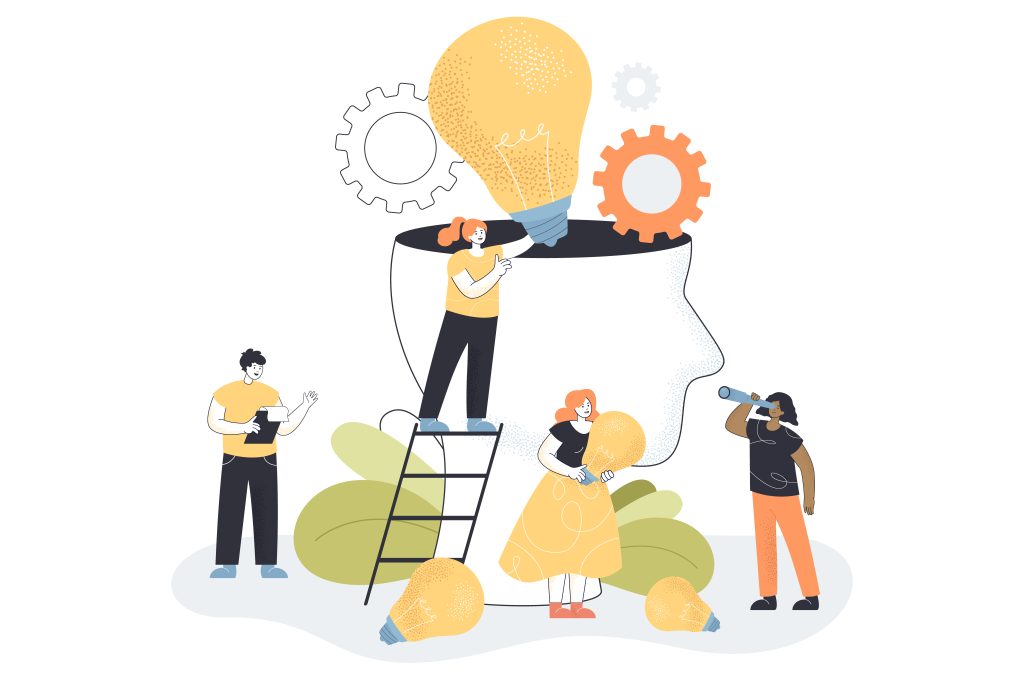In a world defined by instant updates, notifications, and social media storms, developing critical thought matters more than ever. Understanding why we need more thinkers and fewer reactors is central to navigating modern life—with its relentless information flow and emotional intensity. This shift isn’t just about slowing down; it’s about fostering resilience, clarity, and healthier engagement in both personal and societal decision-making.

Why We Need More Thinkers and Fewer Reactors
If you’ve ever found yourself reacting in anger to a headline or sharing content without pausing, you’re not alone. Rapid emotional responses are common—but they often come at a cost. Cultivating the mindset of a thinker—someone who pauses, reflects, and considers context—can significantly improve emotional well-being, reduce stress, and promote more grounded interactions. Recognizing why we need more thinkers and fewer reactors is the first step toward intentional mental habits.
1. The Emotional Costs of Reactive Habits
Reacting impulsively, especially to digital stimuli, triggers the brain’s fight-or-flight response. Studies by the American Psychological Association show that frequent exposure to emotionally charged content can elevate cortisol and increase anxiety levels . Additionally, researchers have linked reactive posting—in particular during emotionally volatile moments—with long-term reduction in emotional regulation . By contrast, pausing to think cultivates a calmer emotional baseline and more deliberate response.
2. The Critical Value of Thinking Before Acting
Across disciplines—from business to wellness—thoughtful reflection helps filter fact from noise. A 2023 Scientific American survey found that employees reporting reflective practices experienced higher decision satisfaction and less burnout . This research echoes broader findings showing that slowing down Intentionally to think increases accuracy, empathy, and creative problem-solving.
3. Trend: Digital Detox As Civic Reflection
In response to social media’s reactive culture, many are adopting micro digital detoxes. These short breaks—from social media, group chats, or news alerts—encourage deeper reflection and emotional reset . This lifestyle shift highlights precisely why we need more thinkers and fewer reactors: to restore mental clarity in an increasingly noisy environment.
4. A Guide to Becoming a Thinker, Not a Reactor
Here’s a practical roadmap to transform reactive habits into reflective rhythms:
Step 1: Notice Your Reaction Patterns
Log your daily emotional triggers—social media, news, conflict—then note whether you responded immediately or paused to reflect.
Step 2: Delay Responses
When emotionally triggered, use a simple rule: wait 15 minutes before replying or posting. This pause makes space for conscious reflection.
Step 3: Ask Critical Questions
-
What’s the source of this information?
-
Am I interpreting it fairly?
-
What impact might my response have?
Developing this inner dialogue strengthens your thinker identity.
Step 4: Practice “Reflective Daily Journaling”
Spend five minutes each evening writing about one moment you reacted and one moment you paused thoughtfully. Over time, you’ll notice what triggers you and how your internal dialogue evolves.
Step 5: Use Digital Tools
Apps like Moments or Day One can prompt mindful check-ins before posting online. These can act as micro “think moments.”
5. Benefits of a Thinker Mindset
| Benefit | Why It Matters |
|---|---|
| Emotional stability | Reduces anxiety and impulsivity |
| Clearer decision-making | Supports empathy and informed judgment |
| Improved communication | Encourages thoughtful responses, not reactions |
| Increased accountability | Leads to ownership instead of blame |
| Resilience and mental health | Fosters inner strength during stress |
6. Real-World Success Stories
Journalist-scholars practicing reflective journalism often lead with empathy and depth—not quick angles. In Silicon Valley, tech leaders known for pausing and requesting reflection ahead of decisions report more sustainable team dynamics and fewer burnout crises. These real-world cases illustrate exactly why we need more thinkers and fewer reactors in every sphere of life.
7. The Future of Thoughtful Living
Emerging wellness programs blend mindfulness and civic reflection. Leading workplaces now encourage “reflective professional hours” without meetings or notifications. Mental health apps incorporate pause-functionality, prompting users to breathe or reflect before reacting—indicating a broader societal shift toward intentional thinking.
Conclusion
In an age defined by sound bites and scrolls, intentional thinking helps reclaim our attention, emotions, and agency. Recognizing why we need more thinkers and fewer reactors isn’t a judgment on others—it’s an invitation to reclaim thoughtful presence. By choosing pauses, reflection, and inquiry we build a world rooted in understanding, resilience, and richer connection—one thought, one moment at a time.
References
- American Psychological Association (2022). Stress in America: Managing emotions in a digital age. This report highlights how online reactivity contributes to emotional strain. https://www.apa.org/news/press/releases/stress/2022/concerned-future-inflation
- Scientific American (2022). The Power of Reflection—explores how reflective practices improve decision-making and reduce emotional reactivity. https://www.scientificamerican.com/article/readers-respond-to-the-power-of-reflection/
- Times of India (2025). Digital detox helps unplug & unwind on weekends—demonstrates the mental clarity and emotional balance gained by stepping back from online reactivity. https://timesofindia.indiatimes.com/life-style/spotlight/digital-detox-helps-unplug-unwind-on-weekends/articleshow/121846489.cms









